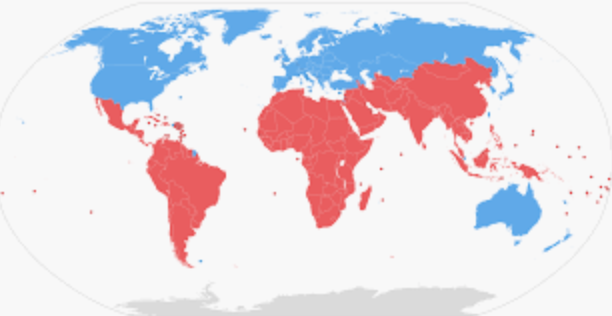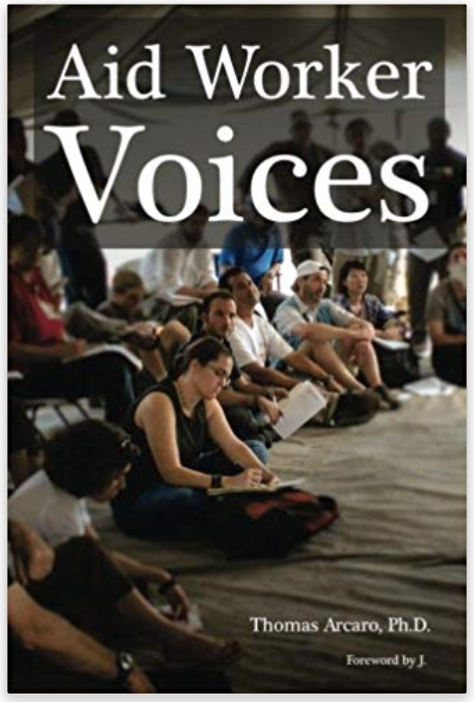A global survey targeted at national humanitarian workers
[Updated 4-23-19]
English, French, Arabic, and Bangla versions are now live.
A global survey targeted at national humanitarian workers
In the last seven months I have been working with humanitarians in several nations drafting a wide-ranging survey instrument. Our goal now is to get the word out as broadly as possible and, ideally, find ways to reach all national humanitarians, making them aware of the opportunity to share their voice via this survey. Our target population includes humanitarian aid and development workers that are from and are working in the so-called ‘global South.’
The purpose of this survey is to learn about the views and lives of national humanitarian workers and then to share this knowledge with the humanitarian (aid and development)
community. Tentative plans have been discussed to hold one or more mini-summits among thought leaders in various locations, including Iraq, Bangladesh, and Ethiopia. At these meetings the data will be presented and discussed and potential action points emerge. Updates and preliminary analysis of the data will appear on this blog in the coming months. An additional deliverable to come from this survey is a book-length treatment of this and other research, tentatively titled ‘Local Aid Worker Voices.’
This research has been approved by the Institutional Review Board (IRB) at Elon University.

Why ‘Global South’?
The term ‘Global South’ was chosen despite the fact it is imprecise and may not be commonly understood by all national humanitarians. In was chosen acknowledging that it is widely used in the blogosphere, academia, and even in official sector communications. For additional background, this essay expresses well the history and current usage of the term.
[Note: The term ‘Majority World’ was coined by Bangladeshi activist and photojournalist Shahidul Alam in the early 1990’s and has since remained known to and used by only a small -albeit growing- subset of writers, academics, and activists. ‘Majority World’ refers to the fact that the majority of people in the world do live in these spaces and ofttimes in the shadow of the minority (e.g., Group of 8 countries). Should I have ‘branded’ our survey with the term ‘Majority World’ and not with ‘global South’? Perhaps.]
The countries that appear in red in the image to the left are in the so-called ‘global South.’
If you are from one of these nations, I invite you to take the survey now. Simply click here for the English version, here for the French version and here for the Arabic version. The Bangla version will be linked in the coming days. Please feel free to pass on these links to others.
Deep background
In 2013 I met and began to work with humanitarian a sector insider who goes by the non de guerre J, otherwise know as Evil Genius. After long conversations, J encouraged me to do a survey of humanitarian aid workers with the goal of hearing and then reporting their voices. We worked together on a series of questions, ending up with a 61 item survey that was made available via the Internet in the spring of 2014. That survey generated robust interest and, in the end, yielded over 1000 responses. Though long, the survey had an amazing 92% completion rate. Over the next year those data were presented in a long series of blog posts, and eventually were eventually edited into my book Aid Worker Voices, published September 2016.
 That title, however, is misleading. What I know now is that there are over 500,000 humanitarian staffers around the world and that approximately 90% of those are women and men who are from and are working in the ‘global South’, that is, they are working with affected communities in their own nation. Those that responded to the 2014 survey were virtually all -95%- international humanitarians or what is otherwise known as ‘ex-pat’ aid workers. They were from places like the UK, US, Canada, Australia, Germany, the Netherlands, and so on. In other words, the title of my book should have been ‘Primarily Global North Aid Workers Voices.’
That title, however, is misleading. What I know now is that there are over 500,000 humanitarian staffers around the world and that approximately 90% of those are women and men who are from and are working in the ‘global South’, that is, they are working with affected communities in their own nation. Those that responded to the 2014 survey were virtually all -95%- international humanitarians or what is otherwise known as ‘ex-pat’ aid workers. They were from places like the UK, US, Canada, Australia, Germany, the Netherlands, and so on. In other words, the title of my book should have been ‘Primarily Global North Aid Workers Voices.’
Since 2016, I have been working aggressively to make up for the sampling bias that is represented in my original data; I have been focusing very specifically on ‘national’ or ‘local’ humanitarians. I have since done country-specific surveys in the Philippines and Jordan, and data from both of these surveys has been presented, discussed, and analyzed elsewhere on this blog.
As word of this research spread, I was contacted by humanitarians working in Iraq and also in Bangladesh, specifically in Cox’s Bazar. I began to work with several humanitarian colleagues to design more country-specific surveys, but the suggestion was made by a colleague in Iraq that it might make more sense to have one global survey that would be a ‘global South’ specific follow-up to my original 2014 survey.
Where the survey project stands now
At this moment the 50 item survey is now live in English, Arabic, French, with a Bengali version ready in the next several days. This global survey is phase one of a two phase project. Both quantitative and qualitative data that come from the current global survey, broken down by nation, will help inform the construction of country specific surveys, drilling down into issues relevant to specific national responses. My research colleagues in Iraq, Bangladesh, Ethiopia, and elsewhere are using various strategies to get the word out using, among other techniques, word of mouth, social media (e.g., Facebook groups, Twitter, etc.), email lists, and message boards of various types. Our hope is that we far surpass the 1000 responses from the 2014 survey that was dominated by ‘expatriate’ humanitarians.
As indicated above, this post will be updated in the coming days. Please contact me if you have any questions or comments.
URLs to all versions:
Long versions (50 questions)
English (long version): https://www.surveymonkey.com/r/JB8JB5T
French (long version): https://www.surveymonkey.com/r/33WF2R2
Arabic (long version): https://www.surveymonkey.com/r/YD3SX6Y
Short versions (25 questions)
English (short version): https://www.surveymonkey.com/r/R3DQRFJ
French (short version): https://www.surveymonkey.com/r/R3BJGRN
Arabic (short version): https://www.surveymonkey.com/r/R3MZFG2


 Follow
Follow